Search
Did you mean: Plautus?
Summary 
Loading AI-generated summary based on World History Encyclopedia articles ...
Search Results
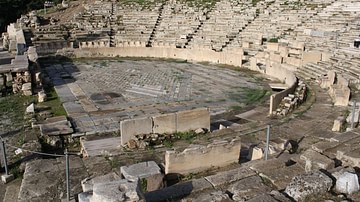
Definition
Plutus (Play)
Plutus (aka Wealth) is a play written by the great Greek comedy playwright Aristophanes in 388 BCE. It was the last of his plays to be performed during his lifetime. Like his earlier play Ecclesiazusae (The Assemblywomen), Wealth was written...
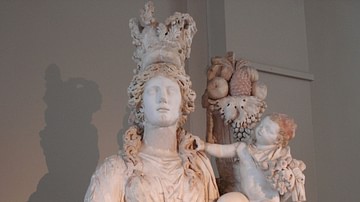
Image
Tyche & Plutus
Polychrome marble statue depicting the goddess Tyche holding the infant Plutus in her arms, 2nd century CE. Istanbul Archaeological Museum.
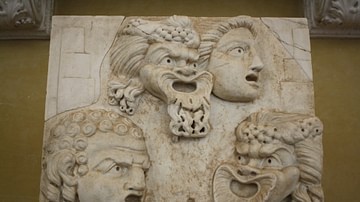
Definition
Aristophanes
Aristophanes (c. 460 - c. 380 BCE) was the most famous writer of Old Comedy plays in ancient Greece and his surviving works are the only examples of that style. His innovative and sometimes rough comedy could also hide more sophisticated...

3D Image
Eirene with Plutus
Eirene (Goddess of Peace) with Plutus (God of Wealth) on her arm, 374 CE, acquired 1894/1895 CE, The Royal Cast Collection (Copenhagen, Denmark). Made with Memento Beta (now Remake) from Autodesk.
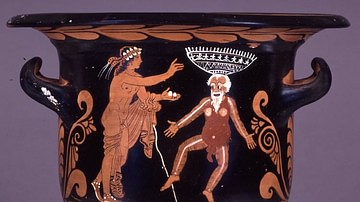
Definition
Ancient Greek Comedy
Ancient Greek comedy was a popular and influential form of theatre performed across ancient Greece from the 6th century BCE. The most famous playwrights of the genre were Aristophanes and Menander and their works and those of their contemporaries...
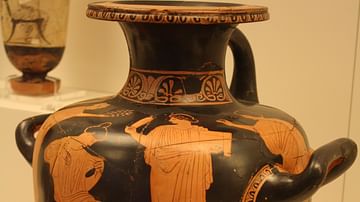
Definition
Ecclesiazusae
The Ecclesiazusae (aka Assemblywomen) is a comedy play written by Aristophanes, one of the great Greek comic playwrights. Written sometime between 393 and 391 BCE, it is, along with his play Wealth, one of only two he wrote after the Athenian...
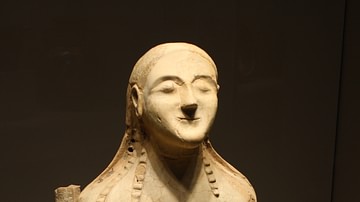
Definition
Demeter
Demeter was one of the oldest gods in the ancient Greek pantheon. Demeter was a goddess of agriculture and guaranteed the fertility of the earth. She protected both farming and vegetation. The close connection with the earth was inherited...
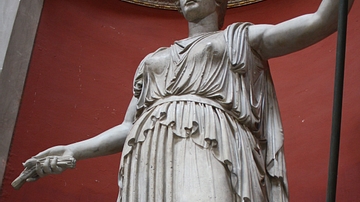
Definition
Ceres
Ceres is the goddess of agriculture and the harvest in Roman mythology. Her favor would bring humankind plentiful harvests and fruitful crops, but her wrath brought blight, drought, and famine. Usually depicted as a matron, her symbols included...
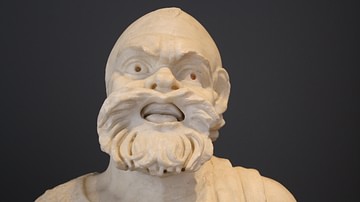
Collection
Comedy & Tragedy: the Drama of Greek Theatre
Greek theatre likely sprang from the lyrical performance of ancient epic poetry and the rituals performed in the worship of the god Dionysos where goats were sacrificed and participants wore masks. From the 6th century BCE, Greek tragedy...

Image
Theatre of Dionysos Eleuthereus, Athens
The 4th century stone version of the Theatre of Dionysos Eleuthereus, on the slopes of the acropolis of Athens. The theatre was orginally constructed in the 6th century BCE.